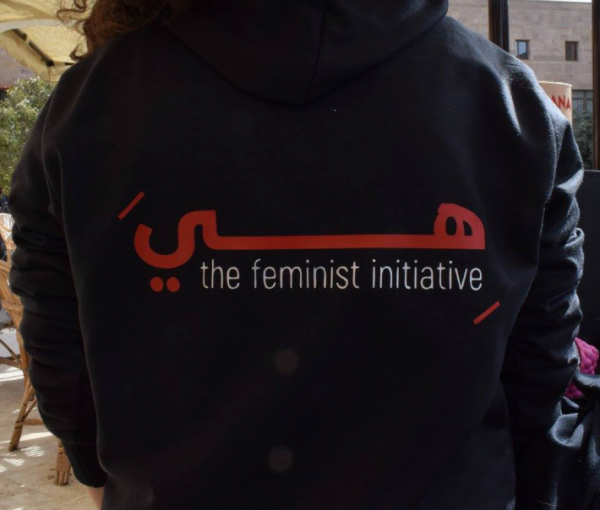
@Dootsie5
Heya: The Feminist Initiative at AUC, is pioneering a project that aims to provide sanitary pad dispensers in the campus bathrooms.
This would be the first such initiative in the region.
Heya attempted to work on this project in Fall 2016, but was delayed due to logistical and financial problems.
“As an idea, we think it is great,” Nadia Abdelhady, Associate Director of Cultural Programs at the Office of Student Engagement (OSE) told The Caravan.
“However, when it comes to application, the process will take some time because there are different parties involved in taking the decision of the format that the dispensers will be created and administered,” she added.
The OSE, she said, is still looking into how a collaborative effort with Heya can be applied.
Other relevant parties such as campus maintenance and housekeeping also need to be informed of the process to guarantee its feasibility.
In the past, the Student Union (SU) provided sanitary pads at its Help Desk but that initiative was not sustainable in the long-term.
The on-campus clinic does not provide any sanitary pads; the only outlet on campus that provides sanitary pads is Seoudi market, located on the other side of campus.
“The purpose of the pad dispenser is to cater to a real and immediate need expressed and experienced by people who menstruate, namely women, everywhere,” Khaled Dessouki, a public relations member in Heya said.
This revamped project will be maintained through student donations in a bid to keep it sustainable, he added.
Whenever someone takes a pad they could leave an EGP 1 donation in a box that will be attached to the dispenser.
“We will make sure that there are always pads. We will have members checking the boxes and we will have our Facebook page printed on the dispenser so that people could message us if they were empty so that they can be refilled immediately,” said Dessouki.
While the locations of the dispensers are yet to be decided, an online survey has been created to see the most requested places.
“They will mainly be placed in bathrooms so that girls are not embarrass to walk out of class to go to the bathroom with pads,” he added.
Some students say the initiative is breaking the silence about women’s biological needs.
Lilia Rhayem, an economics sophomore, said she wishes her home country, Tunisia, would adopt this initiative.
This is because she knows a lot of girls who struggle to find sanitary pads while stuck in class.
“As far as I know, there is nothing like that in Tunisian universities. It is a great initiative, but I do not think something like this exists at other universities in Egypt,” she said.
Antony Constantin, an economics and political science sophomore, thinks that the initiative is a good step to break societal taboos.
“This idea should start a movement around Egypt encouraging women empowerment,” he said.
Some girls, although supportive of the initiative, felt that the existence, or lack thereof, of dispensers on campus will not affect them.
“It might be nice to have [dispensers] on campus, but I do not feel like it will make much of a difference in my life. I think the hype about it on social media groups is pointless and unwarranted,” said Reem Hatem, a Mathematics junior.
Yasmina Bakry, an English and Comparative Literature junior, also believes that dispensers would not affect her much and she can depend on Seoudi when needed.
“I think it is a good initiative and I would promote this project. However, if it does not happen I do not think it will make any difference,” Bakry said.
Heya anticipates that th sanitary pad dispensers will be rolled out some time this semester.
